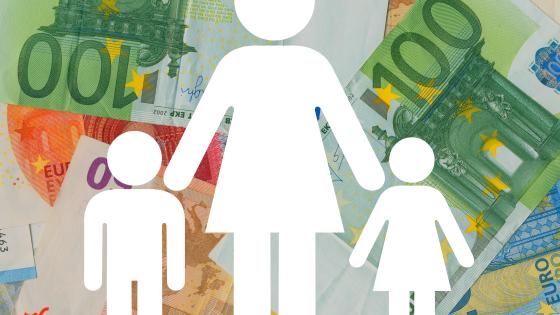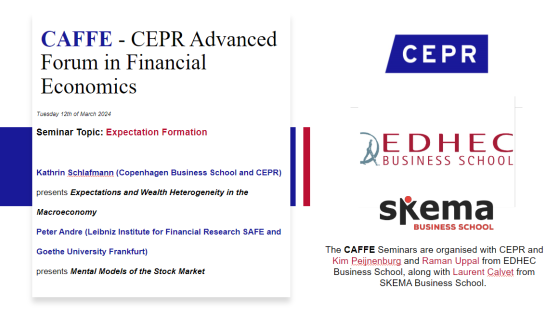


Search the site

Micro and Macro Implications of Household Behaviour and Financial Decision-Making is a cross-disciplinary seminar series covering research at the intersection of household finance, macro and labour economics. It represents a collaboration between universities and research networks and centres.
Seminars are held on Zoom each month and run for 90 minutes including a discussion panel.
Our ninth meeting will be on Friday 27 May from 3:30pm-5:00pm BST and featuring Moritz Kuhn (University of Bonn and CEPR) presenting "Modigliani Meets Minsky: Inequality, Debt, and Financial Fragility in America, 1950-2016" with (Alina K. Bartscher, Mortiz Schularick and Ulrike I. Steins). Discussion by Søren Leth-Petersen (University of Copenhagen and CEPR) and Antoinette Schoar (MIT Sloan and CEPR).
Registration Link: Meeting Registration - Zoom
Organisers: Richard Blundell, Michael Haliassos, Christopher Hansman, Yigitcan Karabulut, Peter Levell, Benjamin Moll, Tarun Ramadorai, and Polly Simpson.
Abstract: This paper studies the secular increase in U.S. household debt and its relation to growing income inequality and financial fragility. We exploit a new household level dataset that covers the joint distributions of debt, income, and wealth in the United States over the past seven decades. The data show that increased borrowing by middle-class families with low income growth played a central role in rising indebtedness. Debt-to-income ratios have risen most dramatically for households between the 50th and 90th percentiles of the income distribution. While their income growth was low, middle-class families borrowed against the sizable housing wealth gains from rising home prices. Home equity borrowing accounts for about half of the increase in U.S. household debt between the 1970s and 2007. The resulting debt increase made balance sheets more sensitive to income and house price fluctuations and turned the American middle class into the epicenter of growing financial fragility.